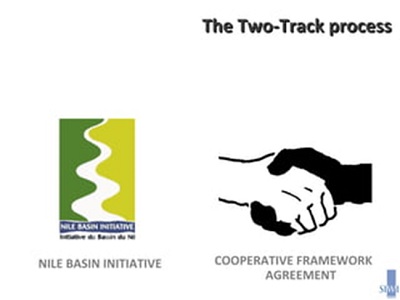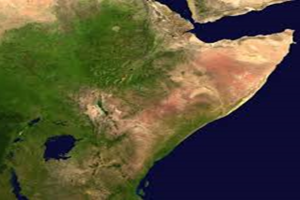
Utilizing natural resources and striving for regional integration is what Ethiopia has been working on for the past years. In regions like the Horn of Africa where everything is changed in a glimpse of an eye, standing in cooperation is the ultimate way for collective growth.
The region is well blessed with regional resources and secures one of the most important geopolitical sites. Such regional advantages must be a way forward for the regional countries to foster their partnership by equally sharing the risks and advantages. Apart from the issues of utilizing the Red Sea and the Gulf of Eden, the Nile River is one of the crucial natural resources that the basin nations have been working on using in better and more equitable ways.
For a century, the longest river in the world, Nile, has mainly been helping the lower riparian nations, Sudan and Egypt. Unfortunately, countries like Ethiopia which contributes around 85% of the Nile water coupled with other upper riparian countries have been by standers when it comes to using the transboundary river for their own national interest.
Colonial agreements among other things shackled nations not to use their natural resources. Ethiopia, the uncolonized nation, cannot stand such pressure from those colonial agreements. The country has been striving for better and equitable utilization of the river as the nation believes that every nation has the freedom to use its natural resources including transboundary rivers.
That is why such a legal framework is needed to exercise the sought-after result of equal usage of the resource. To this point, those Nile Basin nations have crafted the Cooperative Framework Agreement (CFA). The CFA outlines principles, rights and obligations for cooperative management and development of the Nile Basin water resources. Rather than quantifying ‘equitable rights’ or water use allocations, the Treaty intends to establish a framework to “promote integrated management, sustainable development, and harmonious utilization of the water resources of the Basin, as well as their conservation and protection for the benefit of present and future generations”.
Accordingly, back in May 14, 2010, four countries namely Ethiopia, Rwanda, Tanzania, and Uganda signed the agreement. In June 2013, Ethiopia became the first country to ratify the agreement. Then, other states including Rwanda, Tanzania and Uganda did the same. Such an agreement indeed paves the way to sustainable preservation and utilization of the resource. However, still, the lower riparian countries made the road difficult for the agreement to be effective.
In many scenarios, Ethiopia shows its firm stands in utilizing its natural resources. The case of Abbay Dam is the best example. The nation proves itself that it only uses its natural resources for its own use and works hard to avoid any harm or complication that may be caused in lower riparian. Ethiopia also committed to work in collaboration in any case related to the Nile River as it is a common resource.
In addition, regional agreements are also vital for the regional integration. In this case, Ethiopia has taken bold steps to foster integrity in the region by involving in many economic peace and security issues. Even in recent times, Ethiopia agreed to connect its neighboring states through electricity. The country has reached an agreement with its neighbors like Kenya to sell electric power at a relatively cheap price. Moves like this shows how committed the government of Ethiopia is when it comes to regional integrity and collective prosperity.
Lately, at the sidelines of the 3rd Annual Forum for Regional Integration and Reasonable Utilization of the Nile (AFRIRUN), Water and Energy State Minister Sultan Wali (Ph.D.) spoke to the media.
As to the minister, Ethiopia remains optimistic about the establishment of the Nile River Basin Commission though the process is delayed. Amidst a growing number of countries ratifying the Cooperation Framework Agreement (CFA), a commission dedicated to Nile water utilization is expected to be formed.
The number of countries that are required to establish the commission is approaching the minimum requirement. Some riparian countries have ratified the Nile River Basin Cooperation Framework Agreement which was initiated 14 years ago. However, more countries are expected to join the ratification and facilitate the framework’s transition to a formal commission, Sultan (Ph.D.) elaborated.
According to him, the commission’s establishment is expected to proceed swiftly. The Nile River region, particularly the Horn of Africa, is characterized by diverse and often conflicting interests and Ethiopia believes that regional integration efforts will help address these differences.
“Cooperative water utilization and regional power integration are essential for sustainable development. The cooperation we seek aims to foster regional development. Without equitable water utilization and energy integration, sustainability cannot be achieved.”
Ethiopia, as an advocate for regional energy integration, has been supplying electricity to Djibouti for ten years, to Sudan for eight years, and to Kenya for two years. Despite having one of the lowest electricity supply rates for its citizens, the country provides its neighbors with affordable electricity to maintain regional stability rather than for financial gain, the state minister emphasized.
“Ethiopia cannot develop without regional integration and generating hard currency is a secondary goal for us.”
He further highlighted that economic development downturns lead to conflicts, and since 1970, global history has shown that electric power consumption correlates with economic health. “Therefore, cooperation in energy infrastructure development and equitable Nile River water utilization is critical.”
During Prime Minister Abiy Ahmed’s (Ph.D.) recent visit to Dodoma, Ethiopia and Tanzania agreed to energy transmission. A similar agreement exists with South Sudan, and a request is also coming from Somalia. “No East African country can overlook Ethiopia’s role in the power integration.”
Speaking at the opening of the 3rd AFRIRUN, Foreign Affairs State Minister, Misganu Arega reiterated Ethiopia’s commitment to expedite the establishment of the Nile Basin Commission.
Welcoming experts and participants of the forum, the Institute of Foreign Affairs, Executive Director Jafar Bediru highlighted the necessity of replacing unconstructive approaches with cooperative agreements for Nile water fair utilization.
The forum, held under the theme ‘Shared Resources for Shared Future and Prosperity: Cooperation and Regional Integration through Equitable and Reasonable Utilization of the Nile,’ saw participation from experts and government officials from Nile riparian countries.
BY DANIEL ALEMAYEHU
THE ETHIOPIAN HERALD TUESDAY 18 JUNE 2024





